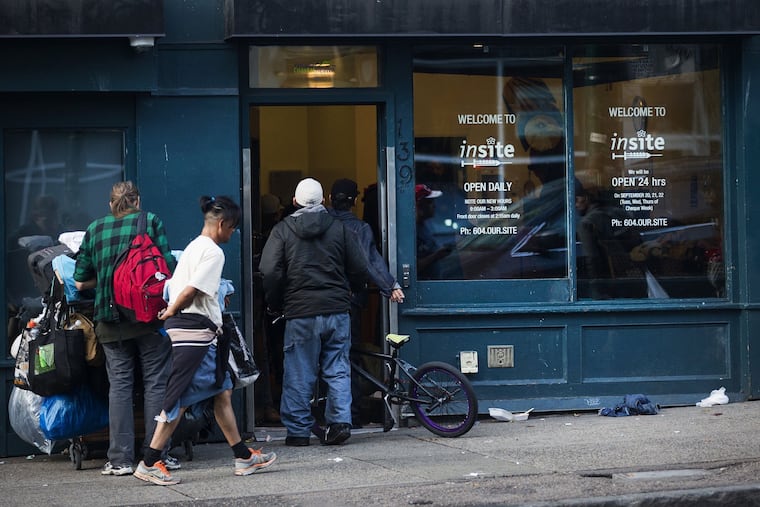New York City approves safe sites for injections, aiming to curb overdoses
A few unofficial facilities have operated in the city for some time.

NEW YORK — The first officially authorized safe havens for people to use heroin and other narcotics have been cleared to open in New York City in hopes of curbing overdoses, the mayor and health commissioner said Tuesday.
The “overdose prevention centers” — commonly known as supervised injection sites — have been discussed for years in New York, Philadelphia, and some other U.S. cities and already exist in Canada, Australia, and Europe.
A few unofficial facilities have operated in the city for some time, allowing drug users a monitored place to partake.
Proponents say the facilities save lives by recognizing the reality of drug use and providing a place where users are watched for signs of overdose. Such sites have operated in dozens of countries around the world for decades.
“I’m proud to show cities in this country that after decades of failure, a smarter approach is possible,” Mayor Bill de Blasio said in a statement.
Opponents, however, see the sites as a moral failure that essentially sanctions people harming themselves, and federal law bans operating a place for narcotics use.
New York’s sites are opening as an organization in Philadelphia remains embroiled in a legal battle to open a site in the city. When the founders of the nonprofit Safehouse announced plans to open a supervised injection site in 2018, they were almost immediately sued by the local U.S. Attorney’s Office.
Then-U.S. Attorney Bill McSwain, an appointee of former President Donald Trump, argued the sites would run afoul of a 1980s law that made it illegal for anyone to operate a facility for the purpose of using illegal drugs. Safehouse has countered that its only purpose is to prevent overdoses amid a crisis that has claimed more than 6,300 lives in Philadelphia since 2015.
A U.S. District Court judge in Philadelphia initially ruled in Safehouse’s favor, and the nonprofit announced plans to open a site in South Philadelphia in 2020 — only to be met with fierce opposition from neighborhood groups that scuppered the effort. Then, a three-judge panel of the U.S. Court of Appeals for the Third Circuit overturned the District Court’s decision, and the Supreme Court declined to take up Safehouse’s case.
The case is now headed back to District Court on separate arguments that were not addressed in the original court case — a freedom-of-religion claim that asserts Safehouse founders are compelled by their faiths to save lives in the overdose crisis, and a claim that because the operation would be run entirely within Pennsylvania’s borders, it should not rise to the level of federal concern.
Staff writer Aubrey Whelan contributed to this article.